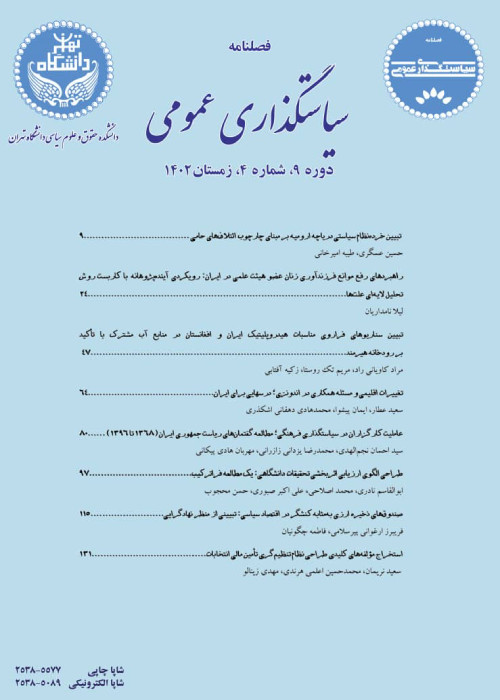An Introduction to the Relationship between the Biological and the Cognitive Domains of the Policymaker: Brain, Mind, and Decision
Discovering the relationship between the two essences of cognition the brain and mind are essential for understanding how humans make decisions. Of course, it is a difficult path related to analytical philosophy and cellular and molecular sciences. This article is trying to create a clear picture of these interdisciplinary relationships to understand better the policy maker's brain and mind in making the public policy agenda. The present study considers Kahenman's distinguishing human brain decisions into intuitive and logical systems. The allocation of 95% share to the intuitive system is a design bias and needs to be redefined and an optimal model based on interdisciplinary studies suggested in this article. Scientific findings from different studies in the field of cognitive neuroscience confirmed that the decision process is influenced by determinants such as health and cellular efficiency of the decision maker's brain and their consciousness as well as the functionality of neurosensory receptors and their interconnectivity. The decision can be formed under the influence of distorted external information from the environment or false internal information of the central nervous system and the resulting illusion. Receiving misinformation can be due to sensory receptors defect, brain injuries, pharmaceutical product or drug abuse. On the other hand, old age and brain damage can lead to diminished or heterogeneous brain neurons, dementia, and loss of identity memories. This type of brain tissue abnormality reduces the brain-mind decision-making capacity, causes cognitive biases, reduces the ability to make correct and timely decisions, or leads to abnormal decision-making. The scope of decision-making disorder can go beyond the individual sphere. In terms of the influence on the policymaker, social and national decisions and policies could be affected and as a result, causing misdirection of the ruling system and development in the country and the world. Testing this hypothesis will require conducting experimental cognitive neuroscience research on the target population of policymakers.
cognitive science , Life science , Public Policy , Brain , Mind , Decision
- حق عضویت دریافتی صرف حمایت از نشریات عضو و نگهداری، تکمیل و توسعه مگیران میشود.
- پرداخت حق اشتراک و دانلود مقالات اجازه بازنشر آن در سایر رسانههای چاپی و دیجیتال را به کاربر نمیدهد.



